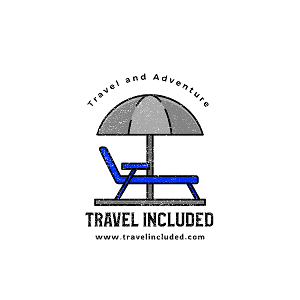We look at how you can make money when you are travelling.
Travelling is great fun and most people would like to travel at some point in their life.
However, unless you have a lot of money saved up already or you have a passive income source, you will need some form of income when you are on your travels.
We have looked at various ways in which you can earn money whilst you are travelling, including passive income ideas and side hustles.
Make Money Online:

Make Money with a Website or Blog
Most full-time travellers start some sort of blog, website or YouTube channel to record their adventures and travel experiences. Some look to try and monetize their content to help fund their travelling.
So difficult is it to start a blog or a website and make money online from it and keep earning a regular income from it?
In theory, it sounds easy, just create a website, write about your favourite subject and then sit back and watch the money come rolling in. Errr…..if only it was that easy, yes ok, it’s easy to create a stunning-looking travel website in only a few hours using WordPress, but getting traffic to it and monetising that traffic can be an absolute labour of love.
With over one billion websites at the last count active on the internet, your site needs to be something special or operate in the right travel niche to stand out and attract visitors.
Although “organic” traffic predominately via Google is what we all strive for, there is now a growing breed of websites (BuzzFeed for instance) that rely on Social media platforms (Facebook, Twitter and Instagram, etc.) to attract the bulk of their visitors and earn revenue.
So let’s say you have created a nice-looking website, found the right travel niche to blog about and have discovered the Holy Grail of achieving a high level of daily visitors to your travel website…….how do you earn money from these visitors?
There are many ways to achieve this and quite often the best results are achieved by using a combination of the following – Google AdSense is perhaps the quickest and easiest means to start generating an income from your travel blog.
Once you have registered for an AdSense account, you just simply cut and paste the code that Google supplies into side banners or posts on your website. This code will then render the right genre of ads for your audience, subject to your website’s niche or the visitors viewing history (via tracking Cookies).
You earn money when ads are viewed on your website or when someone clicks through one of the banner ads (whether they purchase anything or not). Although AdSense is quick and easy to set up, you do need a high amount of traffic to earn any decent revenue from it. As an example, to earn £100 you will typically need approximately 150,000 visitors. That’s a lot of traffic needed for such a relatively small return.
How to Write an Engaging Blog Post
Once you have your travel blog or website and you’ve given it a look and navigation you’re proud of, the next step is to start writing blog posts. This is very important as it’s what Google will assess and rank your website on and will give your site its value and it’s what will encourage people to want to visit your site and hopefully to come back time and time again. The problem though is going to be standing out in a sea of content from other travel websites and blogs.
To do this, you need to focus on offering something that is very high quality and that is consistently offering value. As we’ll see later on, this is also good for your SEO (Search Engine Optimization).
Creating an Interesting Blog Title
The key to remember is that someone has to want to read your travel content based on the title and on their previous experience with your site and brand. If you constantly churn out content that is uninspired, derivative or poorly written then no one is going to bother visiting your website again.
The ‘optimal length’ for a blog post is actually thought to be around 1,800 words. That might seem a bit long, but this kind of length is what will enable you to really dive into a topic and to offer some insight and discussion that can’t be found elsewhere. It lets you do a comprehensive overview of a subject and it lets you make your blog post into a resource that other people will recommend and share around the internet and on social media.
Meanwhile, you also need to think about the title and the topic. If you are writing another article called ‘Top Travel Tips’ for your travel website, then you aren’t likely to win over any new fans. Why? Because this subject and structure have both been done to death already!
People read the title and already know precisely what your post will be about and they’ve probably already seen the top travel tips you’re going to offer. How is that providing value?
On the other hand, consider writing an article entitled “27 Best Travel Tips – Save Money, Stay Safe & Enjoy Your Holiday“.
This is more likely to catch people’s attention and encourage them to click the link and read the post.
Here are a few examples from other website niches:
“Bruce Lee on Self-Actualization and the Crucial Difference Between Pride and Self Esteem”
“The Outsider With the Public Voice: How Joan Didion Mirrored Us Back to Ourselves”
“A year Without Mom: A Gorgeous Graphic Novel About Separation and Reunion, the End of Childhood and the Tradeoffs of Happiness”
These titles are unique, fascinating and they beg to be read. What’s more, when you click on any of those titles, you quickly find that the same care and attention have been given to the posts themselves.
Each blog post is between 1 and 3,000 words long, is decorated with beautiful images and quotes and is very well written. In other words, they are offering real value to the reader and giving them something to enjoy over a cup of coffee.
How much more likely do you think that something like this is to generate discussion? Or to get shared? And how much more likely is someone to subscribe to that blog? It’s just so far superior when compared to an article on ‘Top Travel Tips’.
Of course, this doesn’t mean all your posts need to be highly thought-provoking philosophical pieces – they just need to be unique, inherently interesting and different.
You can even consider the ‘clickbait’ type articles used to generate traffic via social media. These articles use titles like ‘You’ll Never Believe What I Discovered on the Beach!” or they employ controversy. Either way, this makes the user curious and they want to click. You’re objective is to generate that same curiosity but then to deliver on the promise in the title by making sure your posts are actually as interesting and unique as they sound.
Keep in mind too that the point is eventually to convert your visitors into paying customers. To do that you need to gain their trust and demonstrate your ability to provide value. Once again, the best strategy is clearly to create content that is interesting, unique and in-depth.

SEO and Other Ways to Market a Website or Blog
So as an internet marketer, you’re using your blog to sell products and make money online.
But to do that, you need to market the blog to generate clicks or otherwise drive people to your business model. One way you’ll do this is through SEO, also known as Search Engine Optimization.
SEO essentially allows you to promote your website through Google by ‘optimizing’ it for search. One way you do this is by adding lots of quality travel-related content to your blog, as this is what people will be searching for when they type something in.
At the same time, you want to make sure that it’s the right people who are finding you and that means that you should be including the important ‘keywords’ right in your content: phrases that people will likely search to find what it is that you’re offering.
So your ‘keywords’ might be ‘20 Travel Side Hustle Ideas’ for example. You don’t want to repeat this phrase too often as it will make your site look spammy and it may get downgraded by Google. Instead, then, aim to incorporate around 1-2% keyword density and to write naturally ‘around’ the subject as well.
Posting lots of good quality travel content is a good move, as is ensuring that your site loads quickly and works well on mobile – Google takes all these things into account. The other aspect of SEO is building a ‘backlink profile’.
That means making sure that there are lots of websites out there that are linking to you – and that those websites are relevant and high quality. Other ways you can promote your website include building a large following on social media (once again, the key to success here is to make sure you’re providing value) and building a big mailing list so you can keep people coming back.
How to Monetize Your Website or Blog
Sell advertising space
This can produce a much higher revenue stream. You approach companies that operate within your website’s niche or a related niche and offer them a range of advertising opportunities on your website. These opportunities can be banner advertising or an advertorial feature.
Affiliate Marketing
Similar to AdSense in some respects in that you will typically need a high amount of traffic to earn any serious revenue from it. You will need to open an account with an affiliate program directory such as Commission Junction or Affiliate Window.
These directories will facilitate you to work with an affiliate provider, they will usually supply you with a range of marketing material for you to add to your website, you usually only get paid on a Cost Per Action basis (CPA), i.e. you only earn a commission when someone actually buys something, unlike AdSense when you get paid for ad impressions whether they purchase or not.
Lead Generation
Capture enquiries on your website for travel products and services and then sell them on a cost-per-lead basis (CPL) directly to companies that provide those services.
Email Marketing
Similar to the above. Build a database of opted-in subscribers and then offer travel companies the opportunity to send an email marketing campaign to them.
The above list is not exhaustive by any means, but it does offer a few simple and realistic ways to earn an income online, however as stated at the beginning of this article, it lives and dies on the ability to generate traffic to it.















